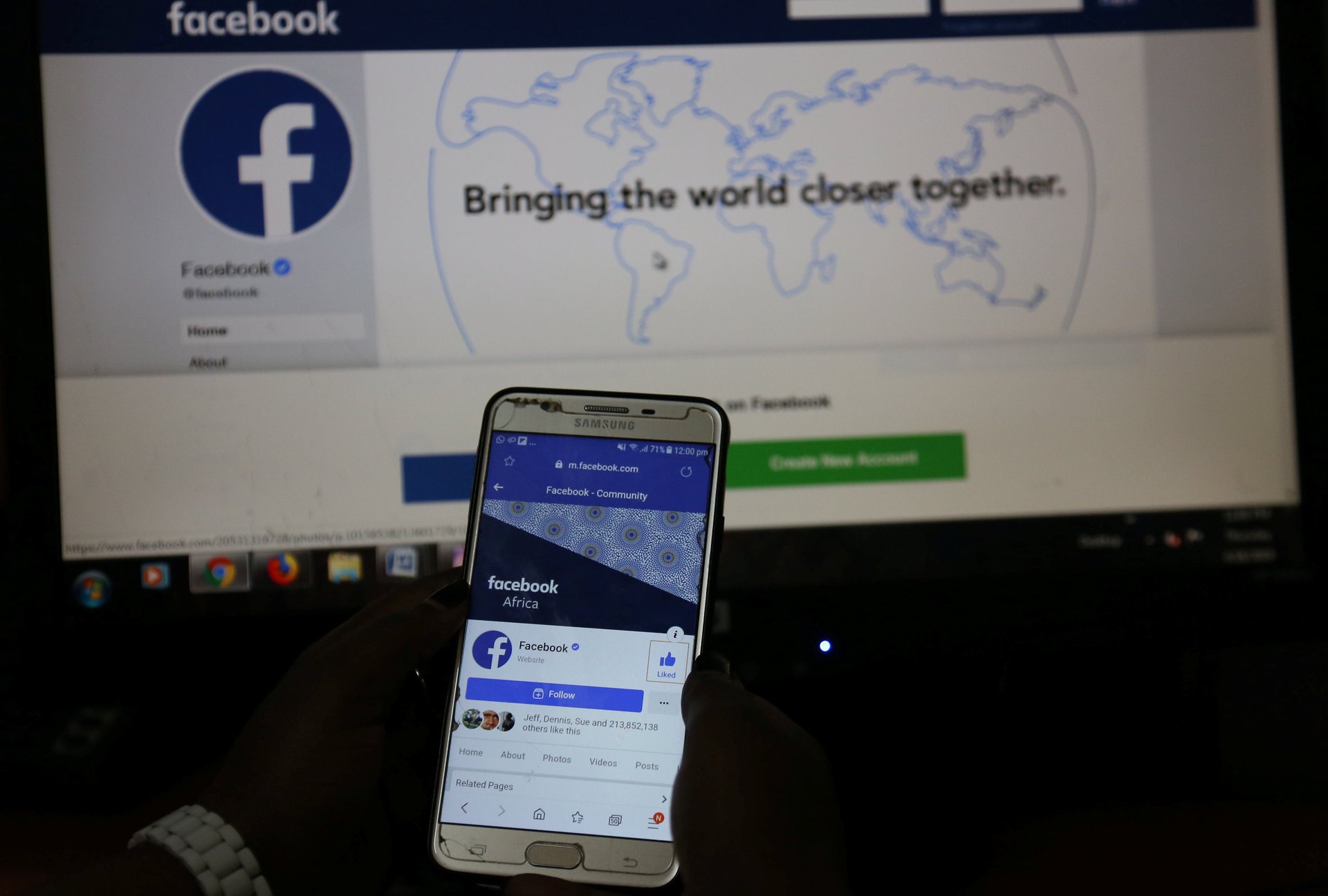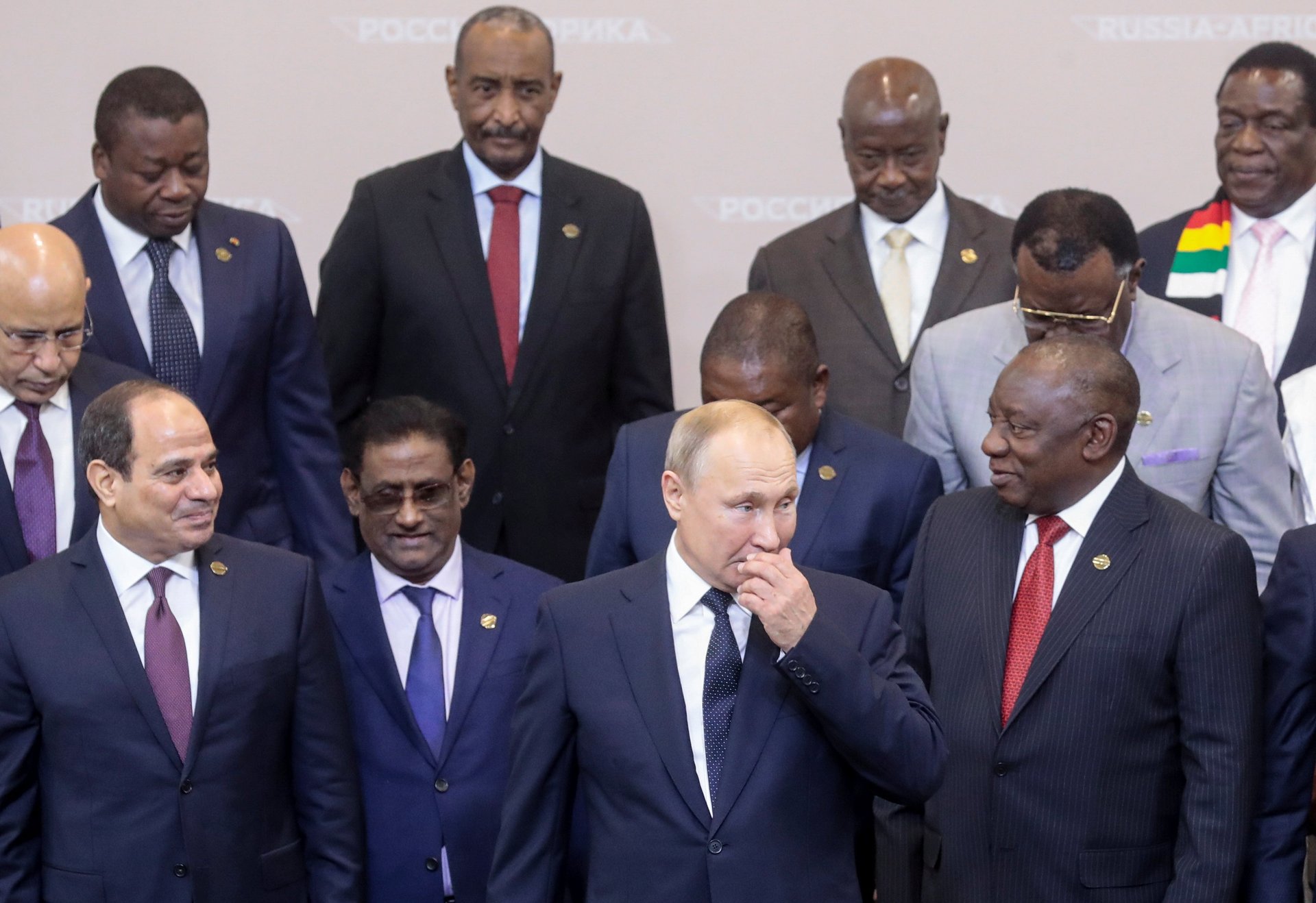Russia is targeting African politics and elections with misinformation campaigns on social media
Days after the conclusion of the first ever Russia-Africa summit which was the culmination of Russia’s efforts to grow its influence as a regional economic player, there’s evidence the East African giant is influencing matters on the continent in other ways.


Days after the conclusion of the first ever Russia-Africa summit which was the culmination of Russia’s efforts to grow its influence as a regional economic player, there’s evidence the East African giant is influencing matters on the continent in other ways.
A research report by Stanford Internet Observatory has linked an elaborate social media-based operation to influence views and elections among African social media users to Russia. The report notes Yevgeny Prigozhin, a Russian businessman who has been accused of meddling in US elections and has been indicted by the US Justice Department, is central to the operation. Prigozhin is also well known for running the Internet Research Agency, a Russian company known for its online misinformation tactics.
Stanford Internet Observatory, a research lab at Stanford University, shared some of its research with Facebook and the social media giant has identified and suspended three networks of Russia-linked accounts, pages and groups on Facebook and Instagram for engaging in “foreign interference.” Facebook’s investigations show the networks originated from Russia and connected their activities to entities linked with Prigozhin. The social media giant categorizes foreign interference as “coordinated inauthentic behavior on behalf of a foreign actor.”

As president Vladimir Putin looks to rapidly grow Russia’s influence on the continent following a decade which has seen Chinese presence in Africa grow unrivaled, a masked media operation to subtly push Russian propaganda and peddle its soft power is in fitting with the country’s recent internet tactics. The choice of a social-media based operation also contrasts with China’s preference for using state media channels like Xinhua news agency and CGTN TV network which have had questionable impact.
While one network of the suspended accounts targeted Madagascar, Central African Republic, Mozambique, DR Congo, Côte d’Ivoire and Cameroon, two other networks solely targeted Sudan and Libya respectively. The Observatory notes that the operations “shared tactical similarities” to Internet Research Agency’s previous activities.

In Madagascar and Mozambique, the network used authentic accounts of locals in addition to fake accounts to manage groups and post content about elections in both countries as well as criticism of US and French policies. The tactic of working in alliance with authentic accounts of locals was also deployed in Sudan where the network posted stories from Sudan’s state news agency and Russian state-controlled media Sputnik and RT. In Libya, the Observatory notes that the Russian network’s activity hinted at support for two potential future presidential candidates: Saif al-Islam Gaddafi, son of longtime rule Muammar Gaddafi and rebel General Khalifa Haftar.
Researchers at the Stanford Internet Observatory say the tactic of working with accounts of authentic locals to post coordinated messaging was aimed at increasing “hurdles to attribution of disinformation campaigns.” The report also notes that the operation was not limited to just Facebook and Instagram, as Russian actors also “leveraged public WhatsApp and Telegram groups.”
For its part, it’s not the first time Facebook has shut down networks targeting Africa from outside the continent. In May, it removed a network of fake accounts that targeted African elections from Israel. The network of accounts had spent over $800,000 on Facebook ads since 2012 and garnered a following of over 2.8 million.
As part its drive against fake news on its platform among African audiences, Facebook also recently added fact-checking features to local language content. The feature currently applies to eleven African languages all of which are spoken by over a million people.
Sign up to the Quartz Africa Weekly Brief here for news and analysis on African business, tech and innovation in your inbox